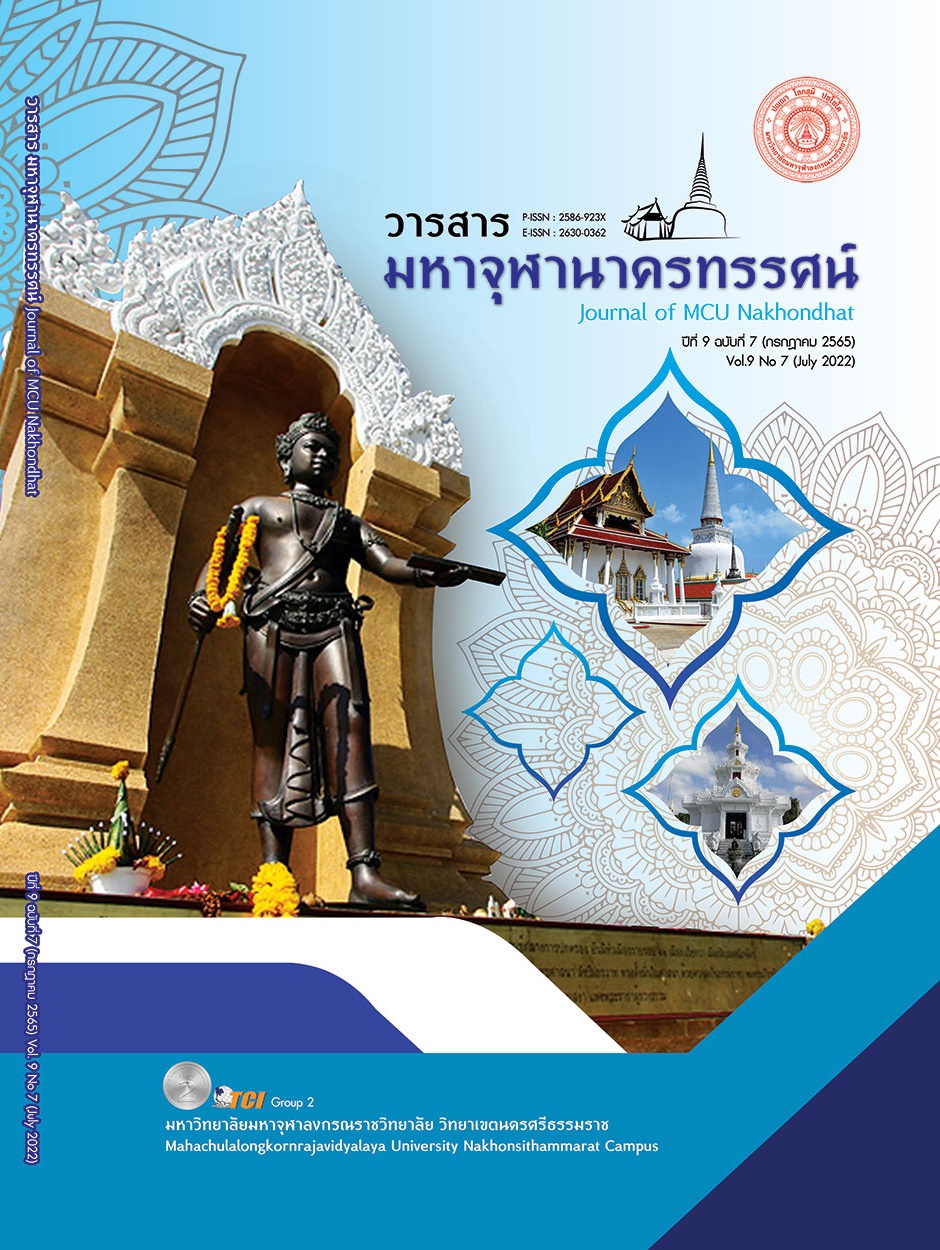OPPORTUNITIES AND CHALLENGES OF DISPUTE MEDIATION AT THE INQUIRY STAGE ACCORDING TO THE DISPUTE MEDIATION ACT B.E. 2562
Main Article Content
Abstract
The objective of this academic article were to investigate principles, as well as the opportunities, challenges, and suggestions for dispute mediation at the inquiry stage as defined by the Dispute Mediation Act B.E. 2562. The mediation of such disputes is important to reduce the amount of cases brought to court, build reconciliation in society and reduce the burden of the state budget. According to the findings of the study , there are still several challenges as follows: 1) In criminal cases, there are only some sorts of content or topics that can be mediated, some petty crimes cannot be mediated; 2) The discretion of the investigating officer to mediate; 3) Due to a lack of sufficient public relations, the majority of people are unaware of their rights in mediation; 4) Mediation skills are lacking among the mediators; 5) The duration of the mediation is unclear, and the mediators should take the knowledge test; 6) The attitudes of inquiry officials toward their role as a mediator, as well as their support for it under the aforementioned Act; 7) The absence of remuneration for mediators who are the third party and inquiry officials; and 8) The lack of sufficient support system in dispute mediation. The findings discovered that the opportunities are as follows: 1) Have a mediator who is professional and ethical; 2. The victim will be compensated appropriately; and the concepts of restorative justice that reduce the burden of the mainstream justice system; therefore, both mediators and legal content should be developed in order to raise public awareness. Including a shift in the attitudes of inquiry officials and pushing forward the system that will allow for further dispute mediation.
Article Details

This work is licensed under a Creative Commons Attribution-NonCommercial-NoDerivatives 4.0 International License.
References
กิตติพงษ์ กิตยารักษ์. (2542). กระบวนการยุติธรรมบนเส้นทางของการเปลี่ยนแปลง. พิมพ์ครั้งที่ 2. กรุงเทพมหานคร: วิญญูชน.
คณิต ณ นคร. (2540). ความเป็นประชาธิปไตยในกระบวนการยุติธรรม (รวมบทความด้านวิชาการของศาสตาจารย์ ดร.คณิต ณ นคร อัยการสูงสุด). กรุงเทพมหานคร : พิมพ์อักษร.
จุฑารัตน์ เอื้ออำนวย. (2547). กระบวนการยุติธรรมเชิงสมานฉันท์ : ทางเลือก ในการยุติข้อขัดแย้งทางอาญาสำหรับสังคมไทย. วารสารดุลพาห, 5(2), 20-36.
ชลัท ประเทืองรัตนา. (2564). การไกล่เกลี่ยข้อพิพาทพาทภาคประชาชน ตามพระราชบัญญัติการไกล่เกลี่ยข้อพิพาท พ.ศ. 2562: โอกาสและข้อท้าทาย. วารสารกระบวนการยุติธรรม, 14(3), 1-18.
โชติช่วง ทัพวงศ์. (2558). คู่มือนักเจรจาไกล่เกลี่ย. กรุงเทพมหานคร: ศูนย์สันติวิธีสาธารณสุข สำนักงานปลัดกระทรวงสาธารณสุข.
ธานี วรภัทร์ และ วิเชษฐ์ สินประสิทธิ์กุล. (2562). การรวบรวมคดีเรื่องการบังคับตามสัญญาประนีประนอมยอมความอันเกิดจากกระบวนการประนอมข้อพิพาทในประเทศไทยที่เกิดขึ้นในช่วงปีพ.ศ.2557-2561. เรียกใช้เมื่อ 26 พฤษภาคม 2565 จาก https://thac.or.th/v1/file/20200225%20
นันทวัน วงษ์สุภักดี. (2563). การไกล่เกลี่ยข้อพิพาทในชั้นสอบสวน : ศึกษา พ.ร.บ. การไกล่เกลี่ย 2562. ใน วิทยานิพนธ์นิติศาสตรมหาบัณฑิต สาขาวิชานิติศาสตร์. มหาวิทยาลัยธุรกิจบัณฑิตย์.
นิติพนธ์ เคาภูเขียว. (2562). ปัญหาการไกล่เกลี่ยข้อพิพาทคดีก่อความวุ่นวายในงานคอนเสิร์ตของพนักงาน. เรียกใช้เมื่อ 1 เมษายน 2565 จาก http://www.lawgrad.ru.ac.th /Abstracts/594
พระราชบัญญัติการไกล่เกลี่ยข้อพิพาท (2562). ราชกิจจานุเบกษา เล่ม 136 ตอน67 ก หน้า 1-21 (22พฤษภาคม 2562).
เพลินตา ตันรังสรรค์. (2553). กระบวนการยุติธรรมเชิงสมานฉันท์ กับการกระทำความผิดอาญาของเด็กและเยาวชน. วารสารจุลนิติ, 7(6), 54-62.
ลาวัลย์ นาคดิลก และ สัญญา เคณาภูมิ. (2560). แนวคิดการไกล่เกลี่ยเพื่อยุติข้อพิพาทคดีอาญาในชั้นพิจารณาคดีของศาล. วารสารสถาบันวิจัยและพัฒนา มหาวิทยาลัยราชภัฏมหาสารคาม, 4(2), 61-75.


